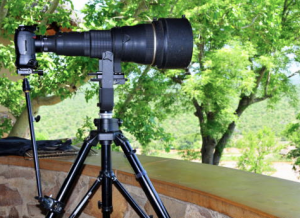It’s not the start of a tasteless joke. It was the start of my day today, and the pastor in question was me.

I want to tell the story, because I’ve been reflecting on it a little. It’s raised some questions and I’m not sure if the way I reacted was the best, so I want to sound it out. Please tell me what you think, even if you think I was an idiot!
How it started
The train was quite busy, but I managed to get a seat and found myself next to a rare phenomenon: two people talking. When the conversation turned to politics, one expressed his views in strong terms and (with some choice language). He’s not a fan of David Cameron, Ed Miliband or Nick Clegg who are all just in it to get rich themselves.
In fact, UKIP are the only hope. They are the only ones who have an answer to immigration, which is causing the disintegration of our society. That’s not the language he used (his was far stronger), but the following is:
All them immigrants, the problem is they just come because they know we’ll give them benefits for nothing so they can go back wherever they came from where stuff doesn’t cost much anyway and live it up large with our money.
This is not true. I happen to have read around this issue a little recently, so I knew that immigrants to the UK, on average, contribute more to the economy than they ‘cost’ in benefits, etc. And that Immigrants are less likely than native citizens to claim benefits. Many immigrants do come to the UK and send money back home or go back home in a financially stronger position. But while here, they contribute to the economy, not weaken it.

Some level-headed journalism on the issue.
What he’d said wasn’t true. It’s a commonly believed lie, but a lie nonetheless. And potentially quite damaging.
What I did
As much as my middle-class, commuting Britishness told me to keep quiet, I found myself unable to do so. Truth is important, and especially because here we’re talking about a form of oppression against those already maligned in our society. These lies hurt immigrants, who have a difficult enough time already.
So I spoke up. Politely. I said I wasn’t sure he was right and asked where he’d got that information from.
There was a pause, and I was then asked who had asked me and why I was sticking my nose in. I said I think it’s an important issue and we need to let our views be shaped by facts, not just hearsay. I then shared simply some of the things I’d read about. I honestly believe I remained respectful throughout.
It was at this point that I spotted, just across the train, a woman who looked to be Eastern European and was visibly quite upset by what she was hearing. I made eye contact briefly, but she quickly turned away.
What happened then
I was surprised and shocked by what then happened. I got shouted and sworn at quite a bit. I was told it was none of my business what they thought and I had no right to tell them what to think. We all have a right to our own opinions and how dare I try and tell them theirs weren’t right.
I was amazed at the strength of their reaction. In their minds, my presenting an opposing position to theirs was me stripping them of the right to hold their own opinion. They were adamant that they were entitled to their own opinion, but they also seemed to feel a right to their own facts.
Another gentleman (a bit older) then joined in and suggested I was ‘clearly too young to remember what Britain use to be like, what it should be like, before our society was eroded by all this outside influence’. I began to respond, but didn’t get very far before the first two guys started admonishing me again.
I wish I could say I had some knock-down argument that ended the whole thing and I won over their hearts and minds. I didn’t.
The woman across the aisle looked very distressed, and got up to go to another part of the train. As she stood, she looked over to me and mouthed ‘Thank you’ with deep sincerity in her eyes. I wanted to check she was alright, so I finished my conversation with these three men by apologising if I’d caused offence but suggesting again that we need to explore these issues carefully. By then the train had pulled in to the station and the woman had gone.
Did I do the right thing?
There’s a few things I’m sure of. Truth matters and isn’t relative. As a follower of Christ, I’m bound to stand for truth. I’m also bound to stand against oppression and for the oppressed. I’m also called to be engaged in this world, its systems and structures.
That was my motivation as I spoke on the train. But did I do it in the best way? Should I have just kept quiet? Should I have said something different?
What would you have done?


